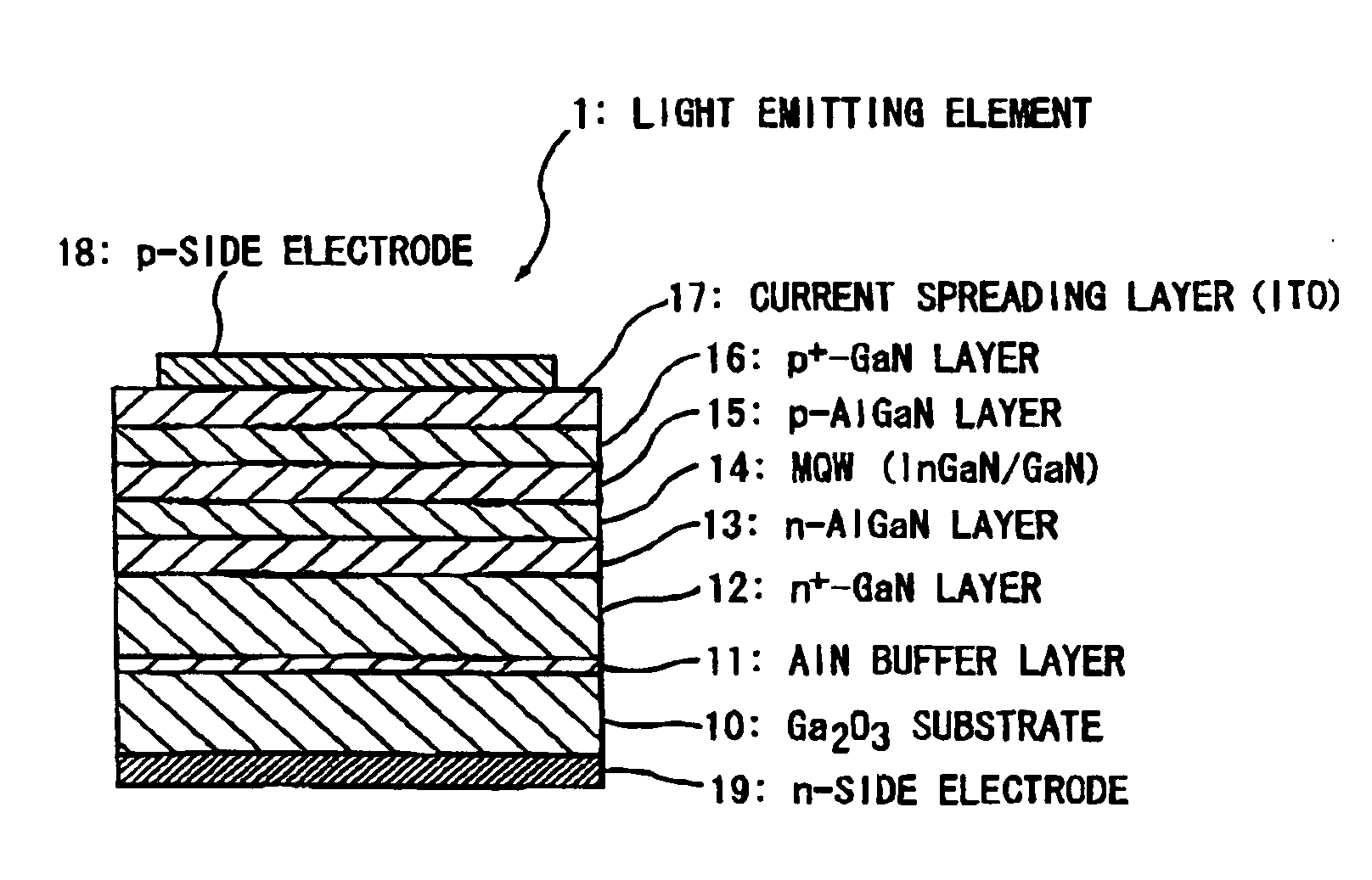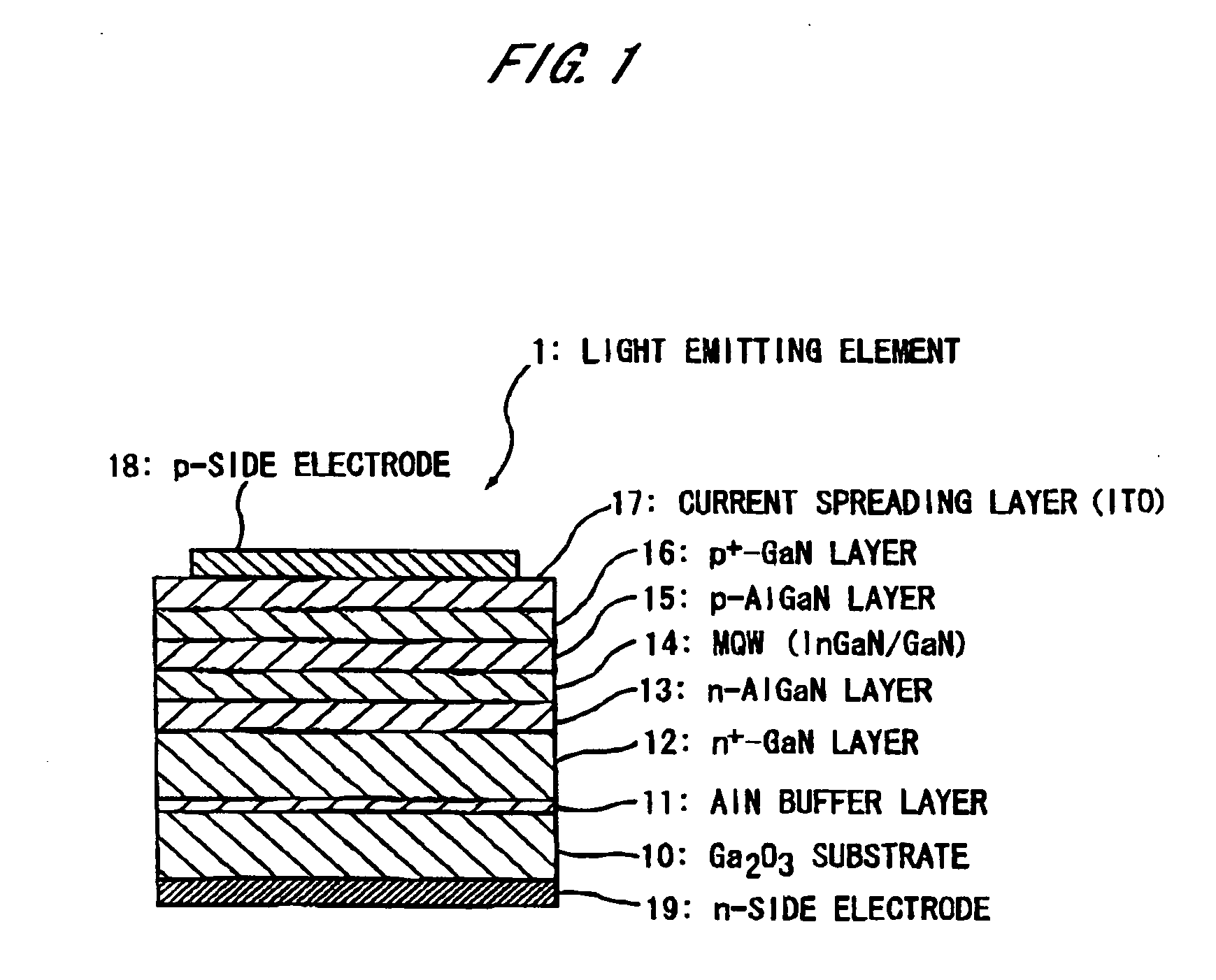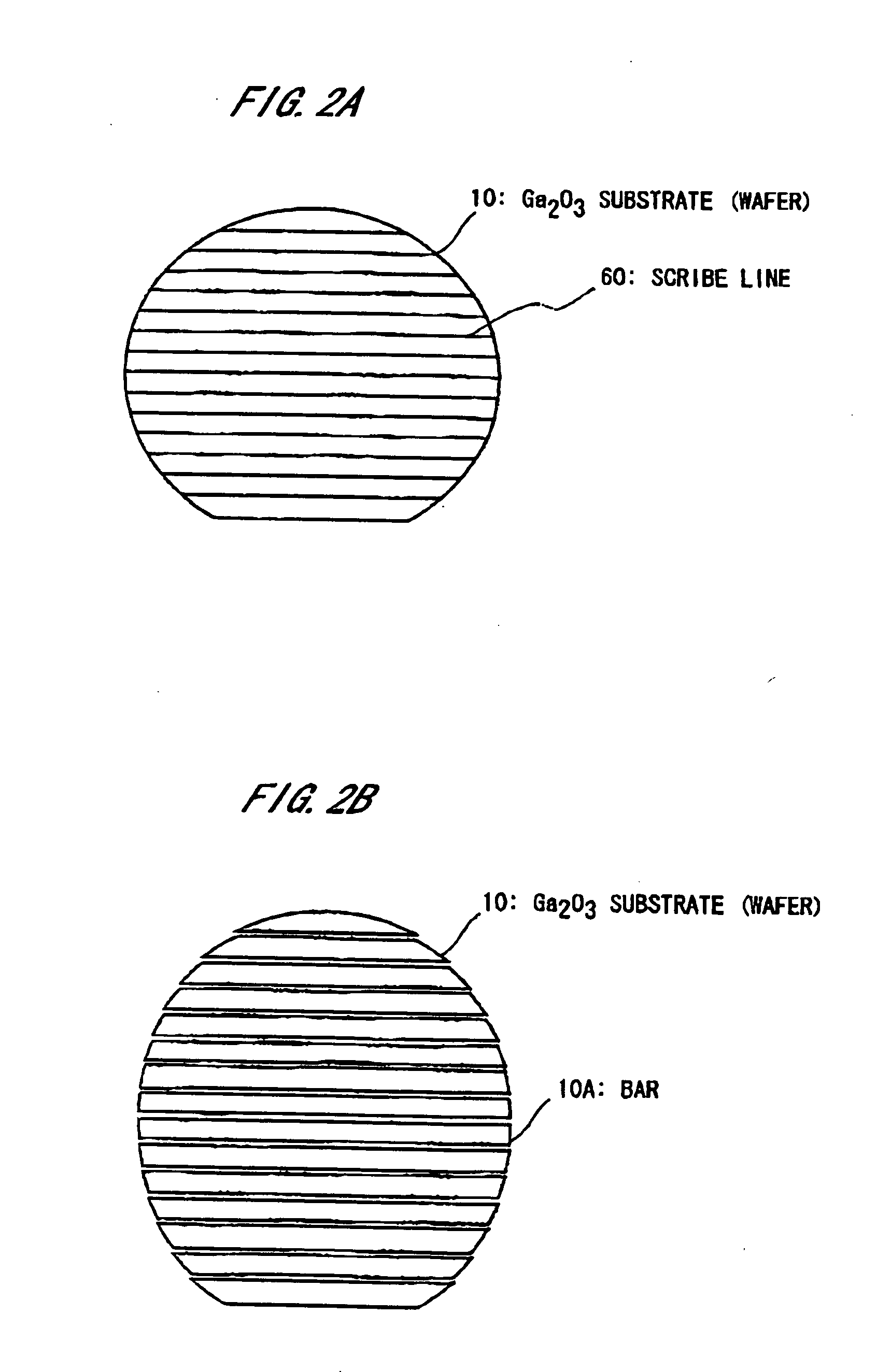Semiconductor element and method of making same
a semiconductor and element technology, applied in the field of semiconductor element making methods, can solve the problems of difficult to break the wafer into dice, difficult to break the wafer at a high product yield by the dicing process, and the substrate may be peeled off to damage the die, etc., and achieve the effect of high product yield
- Summary
- Abstract
- Description
- Claims
- Application Information
AI Technical Summary
Benefits of technology
Problems solved by technology
Method used
Image
Examples
first embodiment
[0071]A method of making a semiconductor element in the first embodiment will be explained below.
[0072]Formation of Semiconductor Layer
[0073]A wafer of β-Ga2O3 is placed in an MOCVD apparatus and its surface is at first nitrided. The nitriding method is not specifically limited and, for example, the wafer of β-Ga2O3 may be heated in ammonium atmosphere. Then, group III nitride-based compound semiconductor layers are on its (100)-plane by an ordinary method.
[0074]In this embodiment, the semiconductor element has a layer structure as mentioned below so as to compose a light emitting element (or LED element) (See FIG. 1). FIG. 1 is illustrated to show the layer structure and does not precisely show the film thickness of each layer thereof.
Layer:Compositionp-contact layer 16:p+-GaNp-cladding layer 15:p-AlGaNMQW light emitting layer 14:InGaN / GaNn-cladding layer 13:n-AlGaNn-contact layer 12:n+-GaNbuffer layer 11:AlxGa1−xN (0.5 ≦ x ≦ 1)substrate 10:β-Ga2O3
[0075]As described earlier, the β-...
second embodiment
[0095]FIG. 6 shows the gallium oxide substrate on which a light emitting element (LED element) is formed.
[0096]The β-Ga2O3 substrate 10 as the gallium oxide substrate is a substrate that is processed into a wafer with a predetermined plane direction. In case of the β-Ga2O3 substrate 10, the substrate surface is set (100), (010), (001)-plane or (801)-plane, and has a strong cleavage property at the (100)-plane. As described above, when the substrate surface is set (100), (010), (001)-plane or (801)-plane, the cleavage property is also recognized at the (001)-plane.
[0097]In growing the light emitting element on the β-Ga2O3 substrate 10, the substrate surface is set the (100)-plane or (801)-plane so as to facilitate the wafer processing and the formation of the light emitting element. In this case, the wafer is cleaved along the (001)-plane by using the cleavage property and cut along the (010)-plane by dicing etc., so that a number of the light emitting elements...
third embodiment
[0129]FIG. 1 is a cross sectional view showing a nitride semiconductor element, i.e., a group III nitride-based compound semiconductor light emitting element (hereinafter simply called ‘light emitting element’), in the third preferred embodiment of the invention.
[0130]Structure of Light Emitting Element
[0131]The light emitting element 1, which is a vertical type light emitting element with p-and n-side electrodes disposed in vertical direction, comprises: a Ga2O3 substrate 10 as a growth substrate for growing group III nitride-based compound semiconductor thereon; and, sequentially formed on the Ga2O3 substrate 10, an AlN buffer layer 11; a Si-doped n+-GaN layer 12; a Si-doped n-AlGaN layer 13; MQW (multiquantum well) 14 with a multiquantum well structure formed of InGaN / GaN; a Mg-doped p-AlGaN layer 15; a Mg-doped p+-GaN layer 16; and a current spreading layer 17 formed of ITO (indium tin oxide) to spread current into the p+-GaN layer 16. The AlN buffer layer 11 to the p+-GaN layer...
PUM
 Login to View More
Login to View More Abstract
Description
Claims
Application Information
 Login to View More
Login to View More - R&D
- Intellectual Property
- Life Sciences
- Materials
- Tech Scout
- Unparalleled Data Quality
- Higher Quality Content
- 60% Fewer Hallucinations
Browse by: Latest US Patents, China's latest patents, Technical Efficacy Thesaurus, Application Domain, Technology Topic, Popular Technical Reports.
© 2025 PatSnap. All rights reserved.Legal|Privacy policy|Modern Slavery Act Transparency Statement|Sitemap|About US| Contact US: help@patsnap.com



